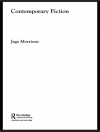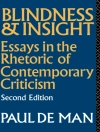In the later Middle Ages, many writers claimed that prose is superior to verse as a vehicle of knowledge because it presents the truth in an unvarnished form, without the distortions of meter and rhyme. Beginning in the thirteenth century, works of verse narrative from the early Middle Ages were recast in prose, as if prose had become the literary norm. Instead of dying out, however, verse took on new vitality. In France verse texts were produced, in both French and Occitan, with the explicit intention of transmitting encyclopedic, political, philosophical, moral, historical, and other forms of knowledge. In Knowing Poetry, Adrian Armstrong and Sarah Kay explore why and how verse continued to be used to transmit and shape knowledge in France. They cover the period between Jean de Meun’s Roman de la rose (c. 1270) and the major work of Jean Bouchet, the last of the grands rhetoriqueurs (c. 1530). The authors find that the advent of prose led to a new relationship between poetry and knowledge in which poetry serves as a medium for serious reflection and self-reflection on subjectivity, embodiment, and time. They propose that three major works-the Roman de la rose, the Ovide moralise, and Boethius’ Consolation of Philosophy-form a single influential matrix linking poetry and intellectual inquiry, metaphysical insights, and eroticized knowledge. The trio of thought-world-contingency, poetically represented by Philosophy, Nature, and Fortune, grounds poetic exploration of reality, poetry, and community.
Adrian Armstrong & Sarah Kay
Knowing Poetry [PDF ebook]
Verse in Medieval France from the "Rose" to the "Rhetoriqueurs"
Knowing Poetry [PDF ebook]
Verse in Medieval France from the "Rose" to the "Rhetoriqueurs"
Mua cuốn sách điện tử này và nhận thêm 1 cuốn MIỄN PHÍ!
Ngôn ngữ Anh ● định dạng PDF ● Trang 264 ● ISBN 9780801460586 ● Nhà xuất bản Cornell University Press ● Được phát hành 2011 ● Có thể tải xuống 3 lần ● Tiền tệ EUR ● TÔI 6806119 ● Sao chép bảo vệ Adobe DRM
Yêu cầu trình đọc ebook có khả năng DRM












